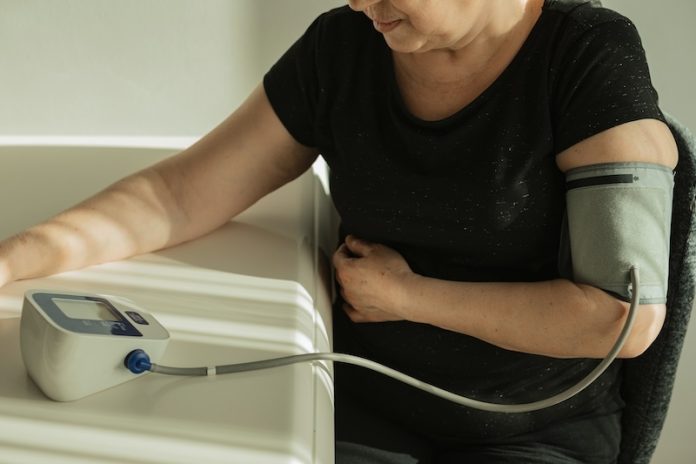
A recent study from the University of Exeter has revealed that blood pressure should be measured in both arms, with the higher reading used for diagnosing and managing hypertension.
This approach could significantly improve the accuracy of hypertension diagnosis, leading to better treatment and management of heart disease.
The researchers analyzed data from 53,172 participants across 23 studies worldwide. They sought to understand the impact of choosing either the higher or lower blood pressure reading from two arms when diagnosing high blood pressure.
Their findings showed that using the higher arm reading could reclassify a significant portion of individuals who might otherwise be missed as having high blood pressure.
Specifically, the study found that when the higher blood pressure reading was used, 12% of the participants were reclassified as having high blood pressure.
These individuals would have fallen below the threshold for diagnosis if only the lower arm reading was considered. This means that many people might be underdiagnosed and, consequently, undertreated if only one arm’s blood pressure is measured.
In more detail, the study showed that using the higher arm measurement led to the reclassification of 12.4% of participants from below to above the 130 mm Hg systolic blood pressure threshold and 11.9% from below to above the 140 mm Hg threshold.
These thresholds are commonly used to diagnose hypertension. Without measuring both arms, these individuals might not receive the treatment they need, increasing their risk of heart disease and other related conditions.
Currently, international guidelines do recommend checking blood pressure in both arms, but this practice is not widely followed in many clinics. The Exeter study highlights the potential consequences of this oversight.
By not measuring both arms and using the higher reading, healthcare providers may underestimate the risks of heart disease for millions of people worldwide.
Moreover, the study found that higher arm blood pressure readings were more accurate predictors of all-cause mortality, heart disease mortality, and heart disease events than the lower arm readings.
This further emphasizes the importance of using the higher reading to assess a patient’s cardiovascular health accurately.
The researchers also pointed out that it is impossible to predict which arm will have the higher blood pressure reading, as it varies from person to person. Some people have a higher reading in their left arm, while others have a higher reading in their right arm.
Given this variability, it’s crucial to measure blood pressure in both arms to ensure that high blood pressure is detected correctly. This is a vital step in providing the right treatment to those who need it.
In summary, the study conducted by Dr. Christopher Clark and his team stresses the importance of assessing blood pressure in both arms.
This simple practice could lead to better diagnosis and management of hypertension, ultimately reducing the risk of heart disease and improving health outcomes for many people. The findings were published in the journal Hypertension.
For those concerned about managing high blood pressure, it’s worth exploring additional studies that suggest early time-restricted eating could help improve blood pressure and that vitamin B might assist in reducing drug-resistant high blood pressure.
These studies, along with the new insights from the University of Exeter, provide valuable information for those looking to manage their blood pressure and reduce their risk of heart disease.
If you care about heart health, please read studies that yogurt may help lower the death risks in heart disease, and coconut sugar could help reduce artery stiffness.
For more information about health, please see recent studies that Vitamin D deficiency can increase heart disease risk, and results showing vitamin B6 linked to lower death risk in heart disease.
Copyright © 2024 Knowridge Science Report. All rights reserved.



